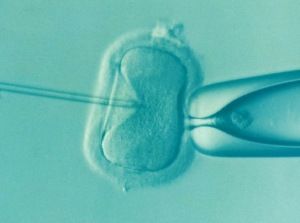News
Fertility failings: Close to one in nine new-borns conceived via artificial insemination last year
This article is more than 5 years old.
Experts blame older parents who tend to struggle more to conceive than people in their 20s

Infertility becoming a bigger problem than before (photo: pixabay/DrKontogianniIVF)
Almost one in nine children born in Denmark in 2019 were the result of artificial insemination, according to Dansk Fertilitetsselskab, the national fertility association.
However, the 10.5 percent share of the country’s new-borns does not represent a huge climb, as seven years ago, the percentage stood at 8.5.
In total, 6,429 children were born to parents who received fertility treatments. Of those, 767 were single women, which again represents a rise on 2012.
Deep-rooted “disease”?
Dansk Fertilitetsselskab chair Kathrine Birch and Søren Ziebe, who works in the fertility department at Rigshospitalet, are among those who are deeply concerned, reports Kristeligt Dagblad.
Ziebe questions whether the current situation is the result of a “disease” deep-rooted in modern living that is making people increasingly unconducive to fertility.
Too old to conceive
However, the general consensus is that far too many people in Denmark are simply choosing to have children well beyond the optimal conception age: so in their 30s and 40s, as opposed to their 20s.
All across the world, and even in countries like the US and the UK where teenage pregnancy rates used to be so high, the average age of a first-time parent has soared over the last two decades.
But societal change is unlikely and just wishful thinking, most experts concede.










































